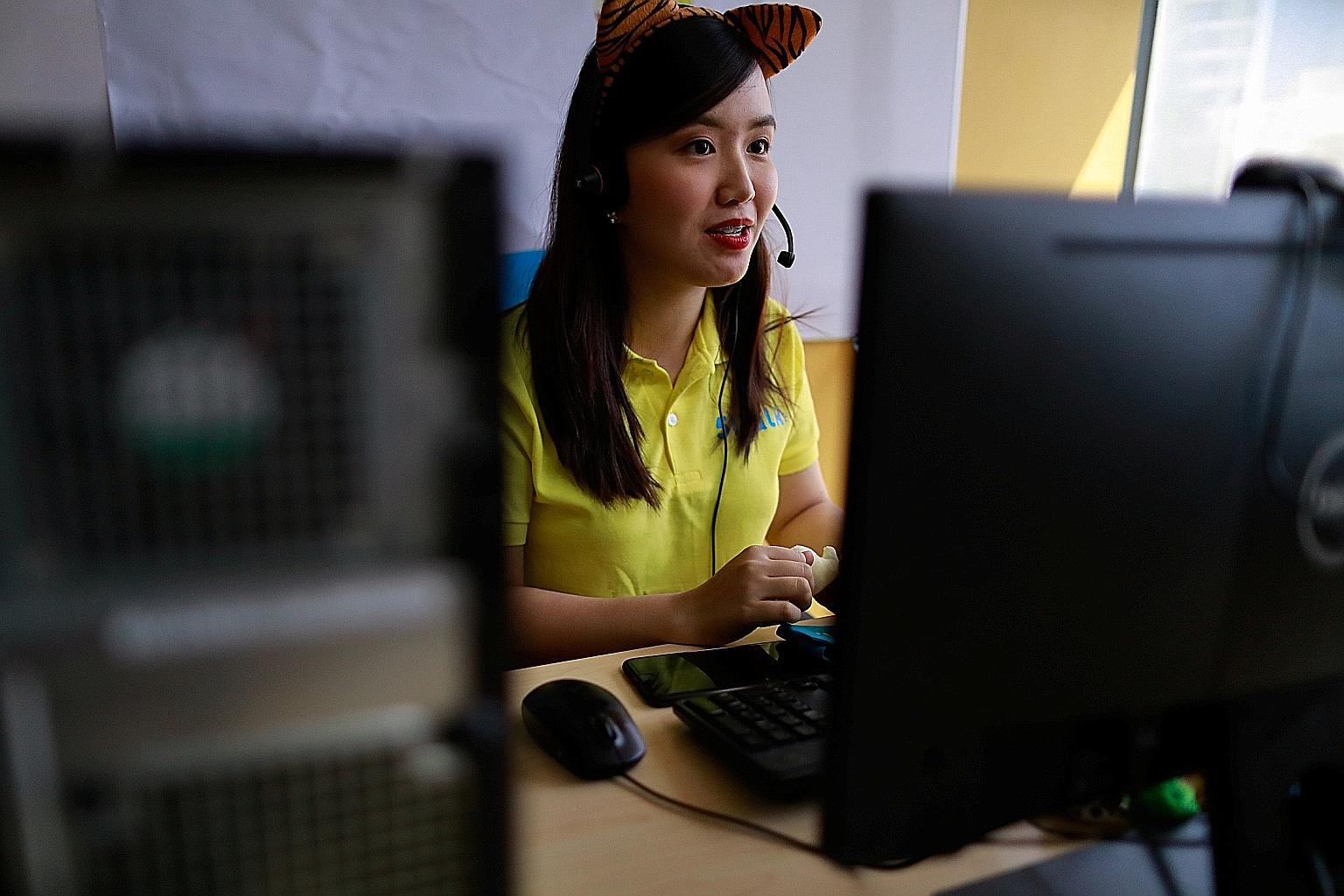Lessons during adversity: Filipino tutors go online
Sign up now: Get insights on Asia's fast-moving developments

Filipino tutor Raven Kate De Leon teaching an online class as the coronavirus pandemic keeps students in China out of school and disrupts other aspects of life.
PHOTO: REUTERS
MANILA • Filipino teacher Raven Kate De Leon is in demand, spending up to 10 hours a day at her home computer surrounded by mini cars and stuffed toys that she uses to inject fun into her English classes for students far away in China.
Since the coronavirus took a hold in China at the start of this year and forced schools and offices to shut down, thousands of Filipino teachers have been cashing in as students and professionals in China, Japan and beyond turn lockdowns into opportunities to improve their English.
The Philippines, as one of only a few countries in Asia that can combine affordable e-learning with an ample supply of teachers with English proficiency, is well-placed to absorb the demand for Internet language classes.
Online platforms such as 51Talk of China Online Education Group and RareJob Philippines, and a host of smaller local Philippine outfits, have seen demand and usage soar since February, bucking the devastating effect on the world's economies from the coronavirus, which has hit over 337,500 people and killed more than 14,500.
"I usually have 20 classes every day, so I could meet the demand of the great number of students nowadays," said Ms De Leon, 22, who works for 51Talk. "I take that opportunity to give them a fun and fruitful distraction because I know they're stressed, worried."
Ms De Leon is now working from 8am to 11pm, without a day off.
51Talk charges around 45 yuan (S$9.30) per 25-minute session, with teachers earning around 130 pesos (S$3.80) per hour.
China shut down its schools in February to contain the spread of infections. More than two dozen countries followed suit, sending over 290 million young people out of the classroom, according to data from Unesco, the United Nations' cultural agency.
"More and more, the safe way to continue learning is to go online," said Ms Jennifer Que, country head of 51Talk, which has 20,000 partner-teachers in the Philippines.
Many online teachers in the Philippines work from home, which has insulated them from the home quarantine measures that have devastated businesses and restricted tens of millions in the country, which has nearly 400 confirmed coronavirus cases.
Shares in the US$419-million China Online Education have surged 154 per cent year-to-date, against the 34 per cent slump in the New York Stock Exchange composite index in the same period.
Other e-learning firms, such as TAL Education Group, New Oriental Education & Technology Group and GSX Techedu, have seen their shares rally by between 17 per cent and 112 per cent, notably at the height of the school closures in mid-February.
RareJob, which has around 6,000 Filipino tutors and specialises in the Japan market, has seen the number of users nearly double to 800,000 since February, CEO Gaku Nakamura told Reuters.
Japan shut down its schools last month to halt the coronavirus spread. "In these kinds of situation, parents do not want their kids to go out," Mr Nakamura said, adding that RareJob's monthly fee of US$60 for Japanese students and US$100 for business-level English is cheaper by up to 40 times versus learning centres in Japan.
REUTERS


